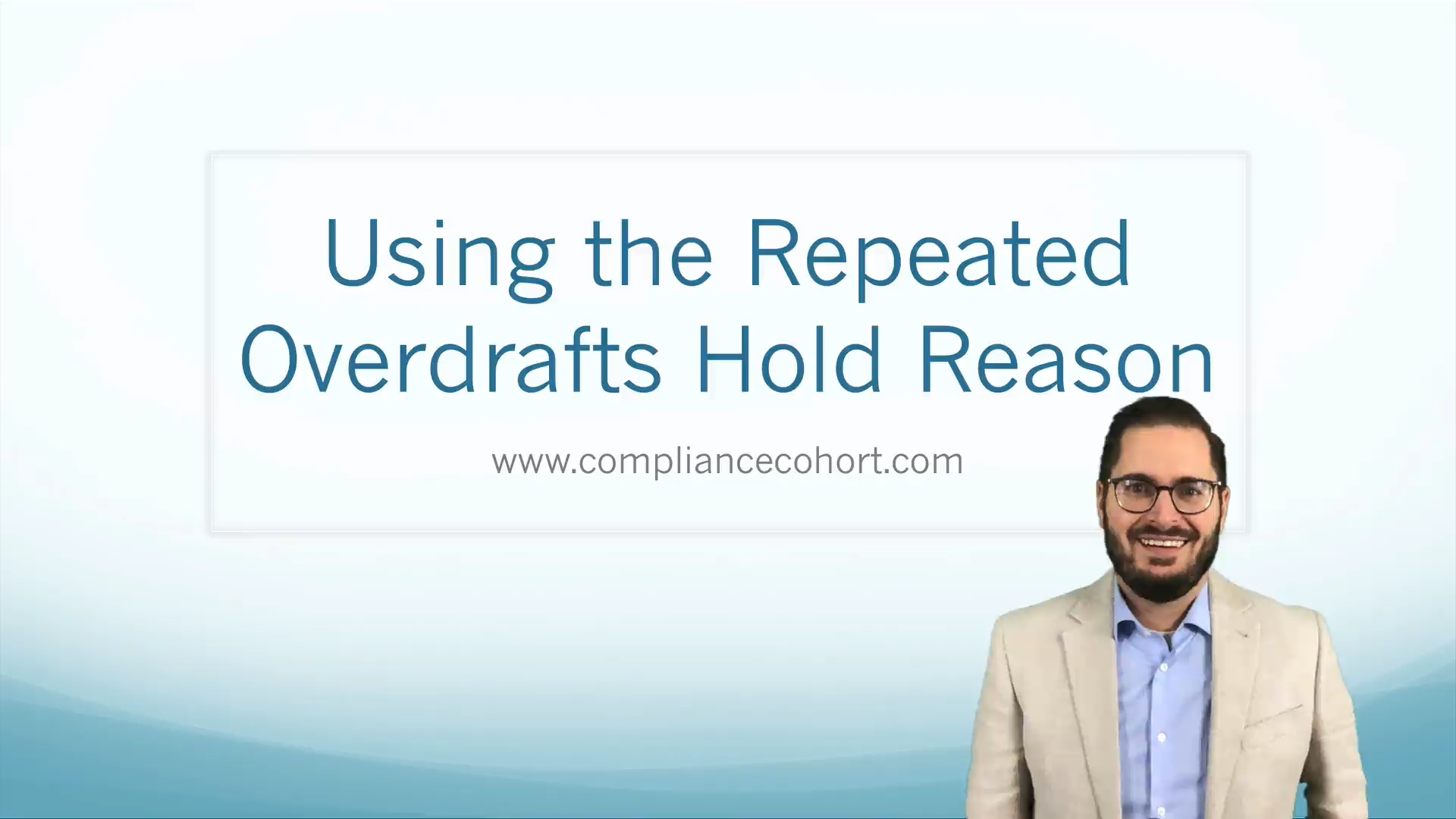Using the Repeated Overdrafts Hold Reason
In this Compliance Clip (video), Adam discuses the two different options for using the “repeated overdrafts” hold reason and also discusses how the new inflation adjustments will change this reason.
For those interested in learning more about how the June 2019 Reg CC amendments will impact the funds availability rules, be sure to check out our Reg CC Training for Tellers in our store at www.compliancecohort.com/reg-cc-training-for-tellers.
Video Transcript
The following is a transcript of this video.
This Compliance Clip is going to talk about using the “repeated overdrafts” hold reason. The reason we're focusing on this topic today is we just finished recording our new compliance training called Reg CC Training for Tellers. In that program, we provide everything your tellers need to know in regards to Regulation CC, as it will be as of July 1, 2020. Of course, there were some changes that took place in Reg CC, so the rules are changing and in our program we go over everything that your tellers need to know about holds as it will be as of July 1, 2020. One of the things we do is we go through all the hold reasons and we explain how they apply. One of the topics in there, of course, is repeated overdrafts. This is one of the special exception holds that your tellers can utilize when there is a specific check deposit. So the type of hold that we're going to discuss is repeated overdrafts.
Regulation CC provides two tests to determine repeated overdrafts. If your customer has repeated overdrafts, there are two tests to determine whether or not they do, in fact, have repeated overdrafts. The first test is if a customer has 6 or more banking days within the preceding 6 months where the account was negative, or it would've been negative, if you had not returned checks and let the checks overdraw the account. That is the first test, 6 or more banking days in the prior 6 months. So really what we have here is quantity - 6 or more banking days. The quantity of six.
Regulation CC gives us another option that's not quite the same quantity, but it's more quality. In other words, fewer transactions at a larger dollar amount. The second test is if we have 2 or more banking days in the preceding 6 months where the account was or would've become negative in an amount of $5,525 or more. Test one, of course, is quantity, 6 or more banking days of any amount negative. And the second test is quality on having a larger dollar amount on a shorter amount of time.
Something I wanna point out here is the amount of $5,525. In the past and up until July 1, 2020, this dollar amount is actually $5,000. As of July 1, 2020, this amount is jumping from $5,000 up to $5,525. The reason this is being done is the changes in Regulation CC are adjusting these amounts for inflation. And this isn't the only amount that's being adjusted. There are other amounts in Regulation CC that are changing and, believe me, it's gonna cause all kinds of confusion. But in case you were wondering where that number came from, that's the new amount effective as of July 1, 2020.
This should be pretty straightforward, this hold reason of repeated overdrafts. You either have to have test one or test two, but I will tell you, in the past, I've experienced where some financial institutions, and I won't name names, though you might be watching ‘cause I've been to a few of your shops, but some financial institutions have had a bad habit of saying if a customer was overdrawn 10 years ago, then they're a problem customer, so we're gonna hold everything going forward. You cannot hold everything going forward by using a repeated overdrafts hold. You potentially can do a case by case hold or maybe another type of special exception hold, but you cannot have a customer that was overdrawn 10 years ago and not been overdrawn since and used the repeated overdrafts reason because it does not meet one of these two tests that you have to have in order to use this reason. Make sure you're using one of the two tests and you'll be good to go when you're using the repeated overdrafts test.
That's all I have for you in this Compliance Clip.

